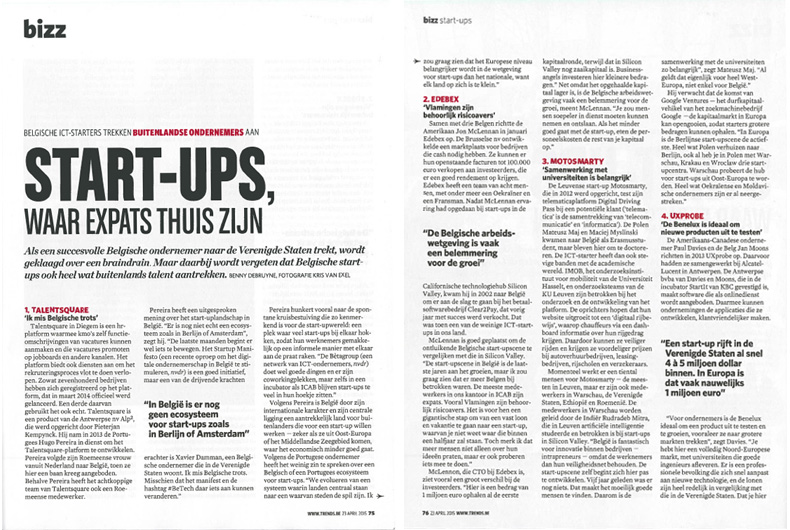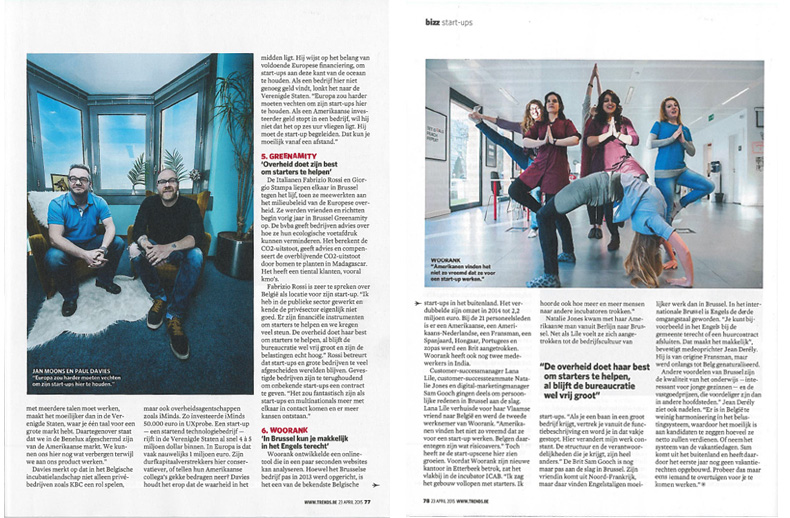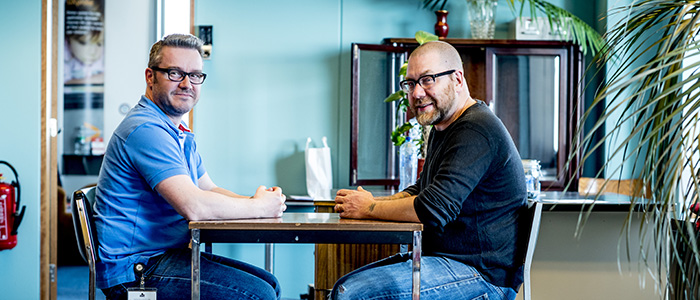Jan Moons and Paul Davies, co-founders of UXprobe
We are part of a very nice article in Trends Magazine (by Benny Debruyne, Issue n°17, 23 April 2015), about expatriates working in Belgian start-ups. Paul is our expat!
EDIT September 21st 2015
Since the article is not online anymore, I am adding it here:


Here is an excerpt from the article, translated from Dutch:
START-UPS, WHERE EXPATS FEEL AT HOME
Belgian IT start-ups attract foreign entrepreneurs
When a successful Belgian entrepreneur leaves for the US, we call it braindrain. But we usually forget that Belgian start-ups also attract talents from abroad.
…
4. UXprobe
“Benelux is the perfect place to test new products”
The American-Canadian entrepreneur Paul Davies and the Belgian Jan Moons started UXprobe in 2013. Previously they worked together at Alcatel-Lucent in Antwerp. Their company, which is hosted in the Startit@KBC incubator, makes an online software service that helps businesses to build apps that are user friendly.
“A start-up in the US raises very quickly 4 to 5 million. In Europe it often barely reaches 1 million.”
“For entrepreneurs, Benelux is perfect to test and grow a product, before reaching bigger markets”, says Davies. “You have here a full North-European market, with universities which deliver good engineers. There is a professional population who adapts really quickly to the new technologies, and the salaries are very reasonable in comparison to the US. The fact that you have to work with several languages makes it more difficult than in the US. On the other hand, it is true that in the Benelux we are protected from the American market. Here we can still somehow hide ourselves while working on our product.”
Davies noticed that in the Belgian incubator world not only the private enterprises like KBC play a role, but also the governmental institutions like iMinds. Indeed iMinds invested 50.000 euros in UXprobe. A start-up – a starting technological oriented company – raises very quickly 4 to 5 million dollars in the US. In Europe it often barely reaches 1 million euros. Are Venture Capital Organisations here more conservative or do our American colleagues give us only crazy numbers? Davies maintains that truth lies in the middle. He underlines the importance of European financing to keep start-ups on this side of the ocean. When a company does not find enough money here, they start to look towards the US. “Europe should fight harder to keep their start-ups here. When an American investor gives money to a company, he does not want it to be 6 hours flight away. He has to supervise the start-up, and this is difficult to do from a distance.”
Photographs by Kris Van Exel

